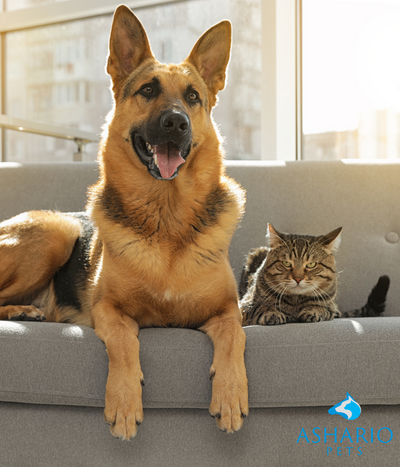Essential Kidney Check for Cats: Keeping Your Feline Friends Healthy and Happy
As cat owners, ensuring the health and well-being of our feline companions is a top priority. One critical aspect of their health is their kidney function. Cats are known for their unique physiology, and their kidneys play a vital role in filtering waste, regulating hydration, and maintaining overall body equilibrium. Regular kidney checks for cats are essential to catch any potential issues early and keep our furry friends healthy and happy.
Kidney disease is one of the most common health problems in cats, particularly as they age. According to veterinary studies, nearly 30% of cats over the age of 15 are affected by chronic kidney disease (CKD). This condition can lead to severe health complications and, if left untreated, can significantly shorten a cat's lifespan. Therefore, understanding the importance of kidney checks and recognizing the signs of kidney issues is crucial for cat owners.
So, what does a kidney check for cats entail? Typically, a veterinarian will perform a physical examination, blood tests, and urinalysis. These tests help assess kidney function, detect any abnormalities, and identify the presence of conditions such as dehydration, infections, or kidney stones. Early detection is key in managing kidney disease effectively. For example, if caught in the early stages, a vet may recommend dietary changes, increased water intake, and regular monitoring to help manage the condition.
As part of maintaining your cat's kidney health, it's essential to provide them with a balanced diet. Cats are obligate carnivores, which means their diet should primarily consist of meat. However, many commercial cat foods contain high levels of phosphorus and low-quality proteins, which can strain the kidneys. Opting for high-quality, veterinarian-recommended diets designed for kidney health can make a significant difference. Additionally, ensuring your cat has access to fresh, clean water at all times is crucial for proper hydration and kidney function.
In addition to regular vet visits and dietary considerations, there are several lifestyle changes you can implement to support your cat's kidney health. For instance, providing a stress-free environment can reduce the risk of health complications. Cats are sensitive to their surroundings, and stress can exacerbate existing health issues. Creating a calm space for your cat, with plenty of hiding spots and interactive toys, can help them feel secure and relaxed.
Moreover, regular exercise is vital for overall feline health. Engaging your cat in interactive play not only keeps them physically fit but also mentally stimulated. A healthy, active lifestyle can contribute to better kidney function and overall well-being.
As responsible cat owners, we must stay vigilant about our pets' health. Regular kidney checks should be integrated into your cat's healthcare routine, especially as they age. Watch for any changes in behavior, appetite, or bathroom habits, as these can indicate underlying issues. If you notice anything unusual, don't hesitate to consult your veterinarian.
In conclusion, prioritizing kidney checks for cats is essential for maintaining their health and happiness. By understanding the importance of these checks, providing a balanced diet, ensuring proper hydration, and creating a stress-free environment, you can help your feline friend lead a long and healthy life. Remember, regular vet visits are crucial for early detection and effective management of any potential kidney issues. Together, we can keep our beloved cats healthy and thriving!




